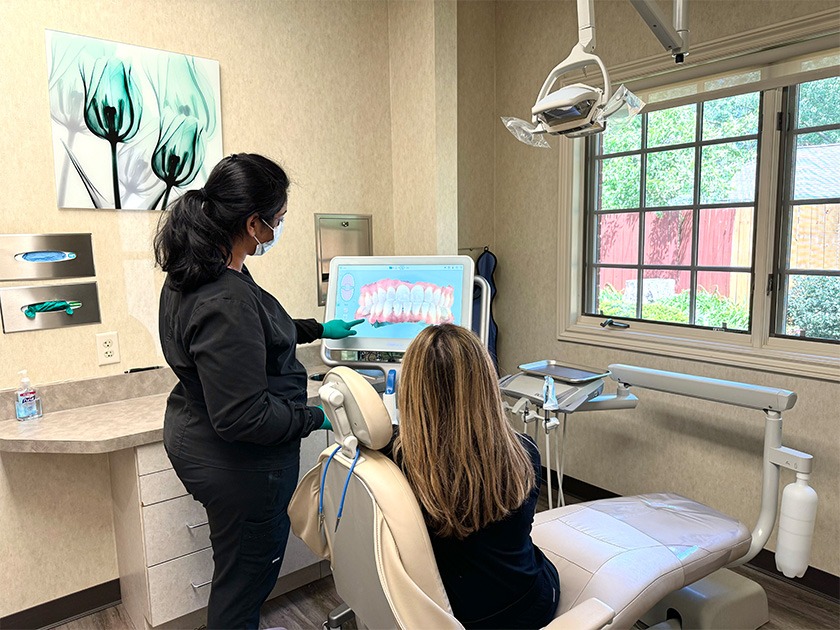TMJ Treatment – Farmington Hills, MI
Helping Patients Overcome Their Chronic Jaw Pain
If you’ve been experiencing frequent headaches and constant pain in your jaw, a TMJ disorder may be to blame. In other words, there could be a problem with the temporomandibular joints (TMJs) that let you move your jaw. Oftentimes, a dental expert can help relieve your pain and improve the function of your jaw with a customized treatment plan. Please contact our Radiant Dental team if you think that you might benefit from TMJ treatment in Farmington Hills.

Why Choose Radiant Dental for TMJ Treatment?
- Gentle Occlusal Adjustments
- Personalized Occlusal Splints
- State-of-the-Art Dental Technology
Symptoms of TMJ Disorder

Here are a few symptoms that could indicate that you have TMJ disorder:
- Your jaw has been in pain or has felt tender lately.
- You’ve noticed an ache around your ear.
- You’ve recently had difficulty chewing.
- Your jaw occasionally gets locked.
- You can hear a clicking sound when you open your mouth.
If you notice these symptoms, you should seek a diagnosis from an expert. We can start discussing your treatment options once it’s confirmed that you have TMJ disorder.
Equilibration / Occlusal Adjustments

Sometimes TMJ disorder is the result of your jaw muscles being overworked due to the alignment of your teeth. In many cases, correcting these alignment issues can be as simple as reshaping a few teeth, often by filing away a small amount of enamel. The goal of this treatment is to create a balanced bite; that way, the muscles around your TMJs will have a chance to relax. This treatment can be completed in just an hour, and it can be a long-term solution for your pain.
Occlusal Splints

An occlusal splint is an oral appliance that is somewhat similar to a nightguard. It’s often used to protect the teeth and jaw from bruxism, a condition where you clench or grind your teeth without meaning to (typically while you’re asleep). In addition to keeping your teeth safe, an occlusal splint can protect your jaw and muscles from overuse that can lead to TMJ disorder. Another benefit is that it can relieve some of the strain on your TMJs by shifting your jaw into its ideal position as you sleep to release tension.

